
Brad Shoemaker hasn't played Dota in several months and keeps telling himself he might be off the habit for good, which means he'll inevitably start playing it again as soon as he has nothing else going on. Idle hands do the Dota's work.
Well, what a year. Writing a piece about the best games of 2017 and only talking about games would feel insincere, if not downright irresponsible, so here goes. This isn't a conventional list of 10 games because, frankly, I barely finished 10 games in 2017, and I sure spent large swaths of it thinking about games no more than was required for my job. In a year when callousness, hatred, and greed held sway, when a large portion of the populace seemed to renounce its desire for basic facts, and when new affronts to common decency arrived by the day, it usually felt like there were more urgent things to pay attention to. I spent what was probably an unhealthy amount of time transfixed by all the shocking developments, both in the United States and around the world, in this strange new era in which we find ourselves. More often than not it was impossible to look away.
As 2017 lurched and shambled on and it became clear this is going to be our reality for the foreseeable future, I slowly drifted back into games and managed to catch up on quite a few of them in the last third of the year. It's probably a sign that I've been relatively fortunate up to now that this year was the first time I fully embraced playing games as a form of escapism and not just entertainment. Below you'll find, um, most of the games I played this year; I couldn't put together a list of 10 games that I felt totally confident about including on a "top 10 list," so I hedged with this format instead. Or maybe I just felt the need to say something nice about as many games as I could fit into this space.
HONORABLE MENTIONS
There are a bunch of games I enjoyed this year but didn't quite feel strongly enough about to put on a list, or had a few too many nitpicks with, or whatever. These are them!
What Remains of Edith Finch
What seems like another boilerplate entry in the Explore Your Family's Deserted Old House genre quickly establishes its own identity, as you make your way through the surreal, tragic tale of the Finches. I actually enjoy how rigidly linear this game is; rather than letting you wander aimlessly and piece the plot together by picking up every object in the house, it instead forces you through a single, specific route of secret passages and secret stories. Some of those stories worked better for me than others, but the end result is still memorable and touching.
Tacoma
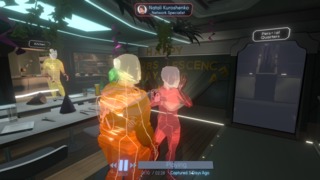
Like Edith Finch, this game carves out a unique niche in the Abandoned House genre (which its developer largely created); the narrative structure, with its augmented-reality scenes that can be rewound and explored at will, is more interesting and confident than Gone Home's, and hey, I like a game set in space. The big late-game info dump was a little on the convenient side for me, but then the very last moment really caught me by surprise.
Polybius
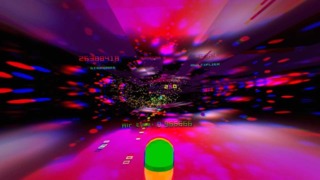
The action in this game is an arcade-esque trifle, but Jeff Minter's homely programmer art takes on an extremely surreal new life when you surround yourself with it in virtual reality. All that primitive geometry and blocky colored text flying right at your face is a real trip. I'll never get tired of his games' fixation on livestock, either.
The Surge

Deck13 has made two extremely, uh, faithful Dark Souls-style games now, and this one gets a lot closer to being its own thing than Lords of the Fallen did. The dystopian corporatist vibe is handled pretty well and I liked how the combat and crafting systems played off of each other, though the action didn't quite have enough of the elegant balance of a Souls game to keep me hooked in the long term.
Nex Machina
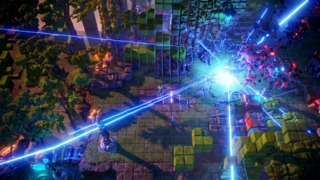
I've always admired Housemarque's visual style and commitment to riffing on old arcade classics like Defender and Robotron, and this one is a fitting sendoff for that phase of the studio's arc, now that it's pivoting to other genres. Some randomness in the enemy patterns, rather than fixed level design, would have given this game more longevity, but the controls are pitch-perfect and it's really satisfying to play.
Horizon Zero Dawn

I'm still making my way through this game, and it has so many intriguing elements. How did society collapse? Where'd the robots come from? What's Aloy's deal? All those questions are keeping me going even as the combat hasn't all-the-way clicked for me--though it's growing on me slowly as I get more upgrades and weapons--and I'm finding the sprawling world to be beautiful but a bit dry and lifeless. Guerrilla deserves credit just for the sheer originality of this game, though.
Middle-earth: Shadow of War

Setting aside this game's various missteps which I've droned on about at length, the Nemesis system is still unlike anything else out there, and the variety of different types of orcs (and trolls)--and the huge range of situations that arise from your run-ins with them--are still so much fun to superhero your way through that I can't not mention this game. It's seriously flawed, but the core of it is still enormously fun.
Cuphead
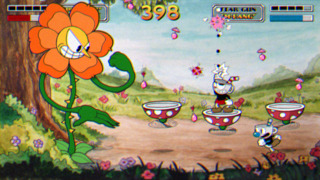
There's nothing I can say about the look and feel of this game that hasn't already been said; the degree of its success in evoking a specific piece of pop Americana is just staggering. I also admire how boldly difficult it is, although the exact feel of the character movement and repetitious nature of the challenge have so far prevented me from really liking how difficult it is. And I've certainly enjoyed some hard games in the past.
Nidhogg II
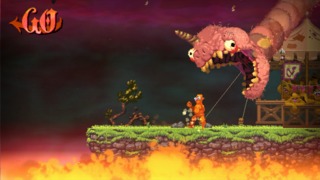
There seemed to be a weird backlash against the pixelized grotesquerie of this game's visual style around release, but I love how Nidhogg II appears to be some kind of mutated Super NES game (and they should have just called it Super Nidhogg). But it also adds plenty on the gameplay front, with a bunch of new weapons that add more depth than the purer fencing of the original. I'll always be down to play a match or three of this just about anytime.
SHOULD HAVE PLAYED (MORE OF) THESE
I enjoyed what I played of these games enough that any of them might have rounded out a top 10 list, but I didn't quite get enough of a sense of them--whether it was seeing how the story played out, or if the gameplay wore thin or not, or whatever--to say for sure. These are all on my to-finish list, which says enough in itself.
SteamWorld Dig 2
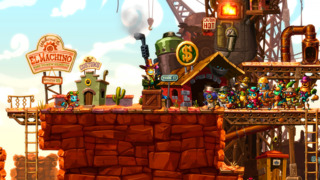
The first Dig was an underappreciated gem, and this one expands on it so dramatically that it deserves every bit of the recognition it's finally getting. The digging and exploration are bigger and more varied, and the progression systems especially are so robustly expanded that the loop of digging, selling, upgrading, and digging again is more entertaining than ever. I can't wait to spend some relaxing time with this over the holiday.
Pyre
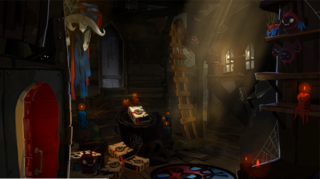
Supergiant is emerging as a boldly creative force by, well, never doing the same thing twice. I can't say I expected a mashup visual novel/sports game out of them for their third game, but I can say I was really drawn in during the few hours I spent in Pyre's fascinating wasteland. It's got the impressive mechanical depth I've come to expect from this studio, and I love some of the quirky touches, like the mouseover-style annotations that give the dialogue greater context. A feature like that only works when a game world is as thoroughly fleshed out as this one's seems to be.
Mario + Rabbids: Kingdom Battle
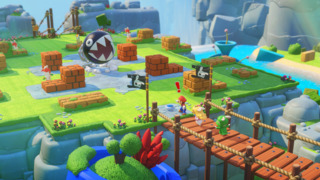
Look, this game is ridiculous in ways Mario typically just isn't, and I started seeing some fun depth in the XCOM-lite combat, which made me want to play more, after only a few battles. I got through the first act and enjoyed the heck out of it before getting distracted. There's a strong consensus that it wears out its welcome, but I will definitely come back and play more of it anyway. With its turn-based nature, it's a great portable game, and I've absolutely got to see that opera scene for myself.
The Mummy Demastered
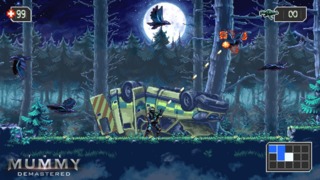
That a movie-licensed game exists in 2017 at all is weird. That the movie in question is one of the more maligned releases in recent history, but the game turned out to be a snappy pixel-art Metroid-meets-Contra affair with some unique ideas and an absolutely killer soundtrack, is downright bonkers. Some of Wayforward's stuff hits for me more than others, but this one hit hard, and like Steamworld Dig 2, it's easy enough to pick up and play that I look, uh, way forward to playing through the rest of it as time allows.
Assassin's Creed Origins
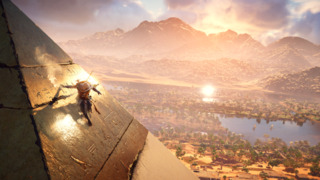
OK, I haven't played this one at all yet. As I tried to catch up on games at the end of the year, I realized I only had time for one massive open-world sprawl, so I went with the original property and started Horizon. But it sounds like Origins has made enough positive changes and remade enough of Assassin's Creed's dated elements that it's practically an original game too. Word of mouth leads me to believe this is exactly my kind of game and I'm planning to get lost in ancient Egypt as soon as possible.
Night in the Woods
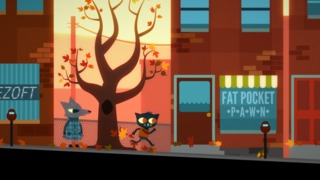
This one either. I nearly interrupted writing this list so I could at least put an hour into Night in the Woods just based on the overwhelming enthusiasm about it in the office, but a deadline's a deadline. It's at the top of my list to play as soon as I can though; what I've heard about its combination of a striking visual style, narrative platforming (?), and generational ennui sounds intriguing, and while I already think this is an exceptional year for games writing, it sounds like I need to play Night in the Woods before I can really make that judgement.
THE ACTUAL LIST
Here are the games I played enough of and felt strongly enough about that they were a shoo-in for whatever top 10 I might eventually write. What would have filled the last two spots? Would something from my to-play list have bumped one of these off? I guess that's another mystery for the ages.
Super Mario Odyssey
If Zelda: Breath of the Wild is, uh, haute cuisine, then Super Mario Odyssey is comfort food. That might be a strained analogy, but you probably get the point: Mario Odyssey doesn't reinvent much of anything about the form of a 3D Mario game, it's just a really good 3D Mario game with a few neat twists. It's unexpected both in its weirdness (that dog is wearing a hat!) and as an ode to the entire Mario series and all the nostalgia wrapped up in its long history. Also, the New Donk City Festival is one of the more joyous things I've seen in a game in ages, and that was especially welcome this year.

I really do wish more of what I hear are Odyssey's best levels and challenges--the stuff you have to dig for after you've done away with Bowser, in other words--was front-loaded and easier to see in the course of playing the main game. I whipped through a good third of the kingdoms faster than I meant to, and crashed headlong into the end of the game before I was actually ready for it to "end." It's a weird psychological hangup, but once I've seen the credits in a game, it feels done to me, and it's harder to get excited about going back and digging through old areas for more things to do, once the newness and sense of discovery is gone. It felt over already. That imbalance holds Odyssey back for me, but I still had a heck of a good time playing it and it's a compelling reason to buy a Switch.
Destiny 2
A better-playing game--with more loot but a less interesting world--which runs out of steam a little abruptly. That's Destiny 2. I had a fantastic time playing this obsessively for something like 80 hours over the first month (less so the bumpy 20-something hours we streamed the raid), and then I just... stopped. If the first Destiny inched you through the endgame too slowly, this one greases up the runners and shoots you there on a rocket sled. Of course, the path to hit max level was full of great shooting (obviously) and wildly imaginative sights. I want more intriguing stories to go along with those sights, though, stories that suggest a grander universe than the boilerplate plot the campaign focuses on; more stuff like Invitation From the Emperor, please. Also, as much as I miss some of Marty O'Donnell's trademark musical stylings, now that I've had a couple months to think about it, the score is better than I've ever given it credit for.
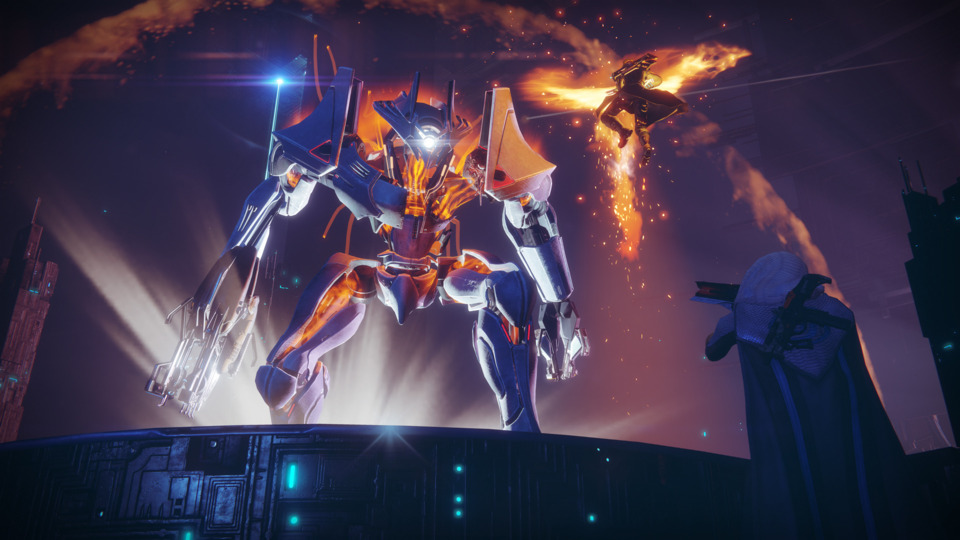
The Destiny 2 that launched in September and Destiny 2 today are practically separate topics at this point, though. The underwhelming first DLC and barebones holiday event that both hit shortly before this writing--along with a series of micro-scandals involving player progression and microtransactions--don't inspire confidence that Bungie is immediately going to right the ship, but I'll show up for every new expansion until they give me a firm reason not to. Eventually, hopefully, all the pieces might fall into place. Destiny remains fascinating and unperfected, but the things that are missing are different here than they were the first time.
Uncharted: The Lost Legacy
I try (and usually fail) not to let cynicism get the best of me, but look, video games are an embarrassingly sequel-heavy medium. I get it, game development is expensive and risky, so it's obvious why winning formulas are reiterated ad nauseam. But a budget-priced game that started out as a DLC expansion to the fourth entry in a long-running series that I already thought was maybe one game too long (whew) does not register high on the scale of creative exigency, especially when I thought parts of that fourth game were a little bit self-indulgent already.
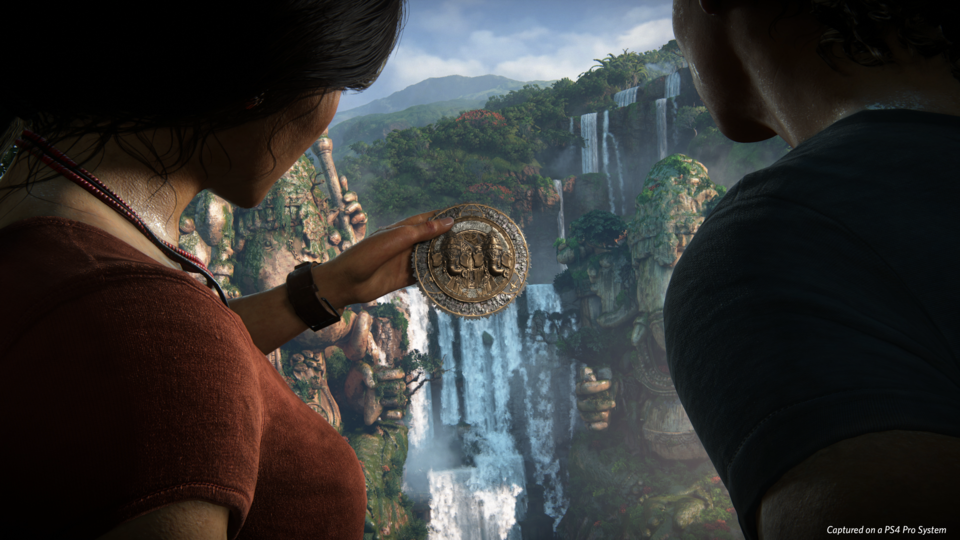
Well, Uncharted: The Lost Legacy sure made me feel silly with a brisker and more tightly paced story than Uncharted 4 had, full of exciting twists and double-crosses, a believably contentious friendship between its main characters, and some long-needed changes to the core Uncharted formula. Even the find-the-artifact portion of Lost Legacy is more exciting than I expected, and I didn't think the fifth game in this series could find a way to make ancient ruins interesting again, but it does. I also think that, as a game with one of the most mainstream brands there is on the front of the box, Lost Legacy deserves some credit for casting two women as its protagonists (and for casting non-white characters in all three of the lead roles, even if the actual voiceover artists weren't equally represented). Who knew ditching Nathan Drake might actually make Uncharted better?
Hellblade: Senua's Sacrifice
I've deeply admired Ninja Theory's talent for storytelling in games since Enslaved came out of nowhere a few years ago, and they were among the first to try applying performance-capture tech to games way back with Heavenly Sword. Hellblade feels like the culmination of all that work, an expertly executed exploration of the title character's anguish in the wake of lifelong abuse and traumatic loss. The game's cinematic qualities are second to none; it presents itself with an eye toward creative camera work, editing, and scene transitions that feel well considered. And the production techniques used to convey Senua's instability rang true to me in a disarming way.
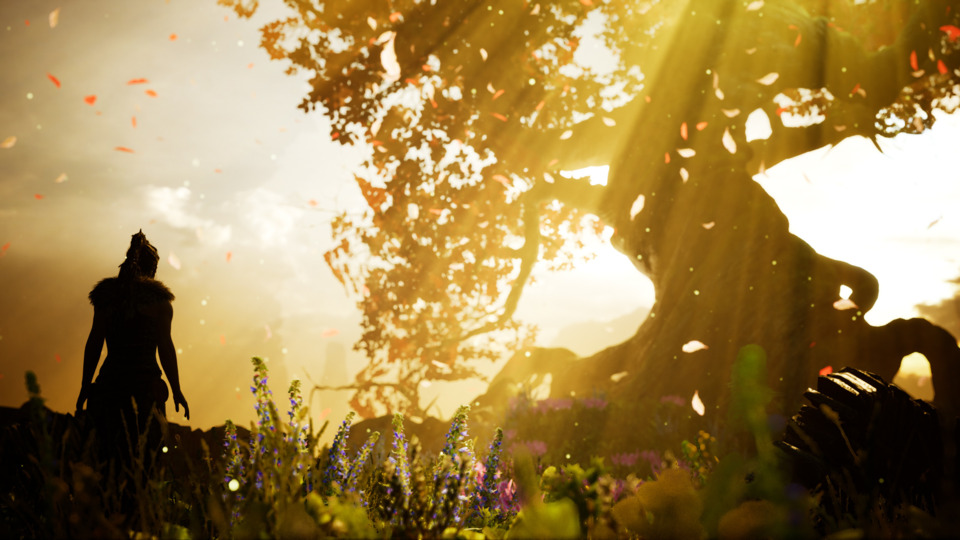
I also admire that this game is small in scope, the better to serve the personal nature of Senua's tale--and the better to get a game like this made, on what must have been a relatively small budget. The game is rightly being lauded as an example to follow of a shorter, lower-priced game with high production values and a riskier, unconventional subject matter, and I hope other studios take a cue from its success. The criticism that Hellblade's gameplay is also limited in scope is not unwarranted, but even being bludgeoned endlessly with duels against these hulking warriors felt like a metaphor for Senua struggling against her intractable condition. This game left a deep impression.
NieR:Automata
After an extremely strong, intriguing first hour, Nier kind of lost me once I got down on the planet and started doing bland side missions with repetitive combat in an ugly, clunky open world that felt in parts like it was lifted out of a PS2 game. But I kept pushing through based on the strong word of mouth that built up around this game over the course of the year, and I'm glad I did. This game's storytelling isn't quite like anything I've ever seen; it feels like it beats Metal Gear at its own game with its enormous bag of tricks, using repetition, and varying perspectives, and fourth-wall-breaking humor, and a ton of clever and moving and very human interactions between its multitude of synthetic characters, to tell a story that culminates in one of the most uniquely triumphant and uplifting climaxes I can remember in a game.
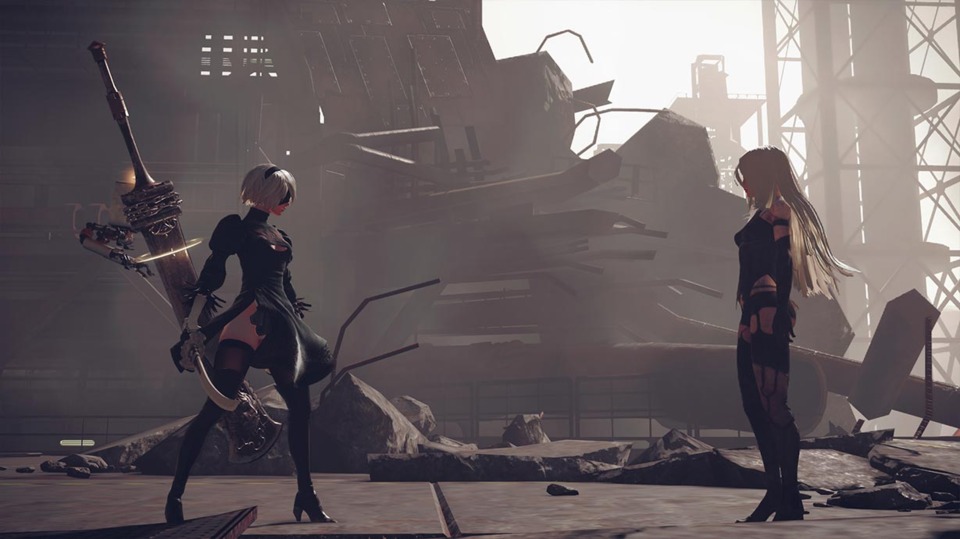
It's kind of remarkable how many different things you could say this game is about, and how clearly you come away from it feeling like it imparted all those themes cohesively, but it's what Nier has to say about ethnic hatreds, and the senselessness of the cycles of violence that arise from them, that affected me the most in the context of the present day. I also have a soft spot for games that weave their storytelling around their nuts-and-bolts video game elements, like the recording and playback of your tutorial actions that frankly blew my mind at the beginning of the second playthrough, or the in-world way the game acknowledges that the map is terrible (and then tells you to get over it), or the fact that you can just buy all the PlayStation trophies from a vendor after you've finished it. It's not my favorite game when considered purely as a game, but to an extent, Nier: Automata transcends appraisal based on those criteria alone. The things it does really well are unlike almost anything I've seen in a game before, and I'll show up for anything Yoko Taro does after this.
Wolfenstein II: The New Colossus
Wolfenstein II might be the most audacious game I've ever played, and its ability to leave your jaw hanging open is matched only by the relentless way it just keeps doing that over and over and over. It's so smartly over-the-top--and takes such a firm position on the oddly controversial topic of whether Nazis are bad or not--that it would almost certainly be at the top of my list if it just played better. It was shocking enough in The New Order that MachineGames managed to create this weirdly contemplative and personal revenge fantasy--involving robot Nazi dogs and Jimi Hendrix and Jewish super magic--around B.J. Blazkowicz, the original blank-slate video game tough guy. What's shocking about The New Colossus is simply how much further it goes to extremes, and how much more often, and even how much more intelligently, than the first game did. To me this game is of a piece with Nier in that both games are more boldly About Something than most games, in a way that suggests an intense creative impulse. New Colossus depicts both the ugliness and the resilience in the American character in a lot of smart and affecting ways, and its enormous cast of characters--and all the quiet moments you get to spend with them in between ruining Nazis--are just memorable as hell.
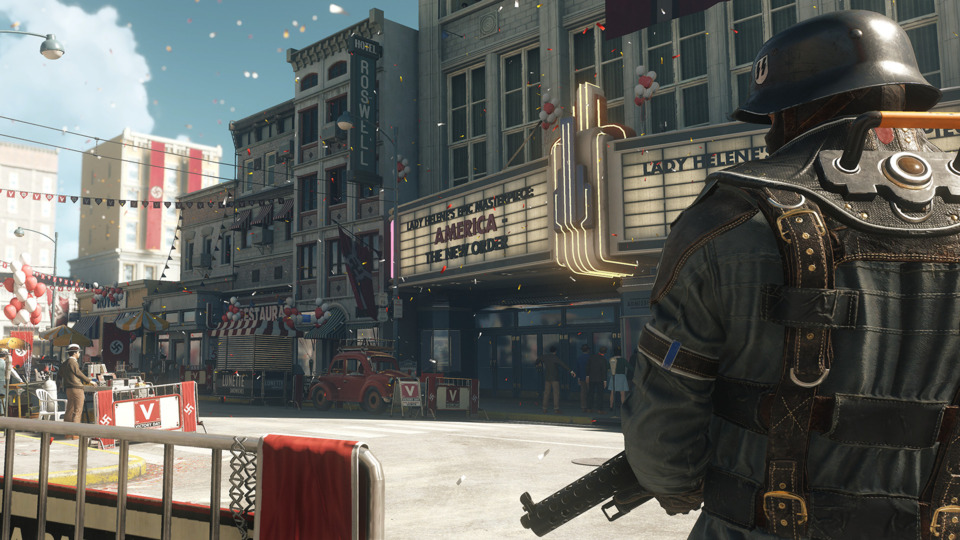
I was excited to see this sequel move to the splendid new Doom engine and hoped it would not only look a lot better than the first game (it does) but play better as well. But despite coming up with a bunch of wild new scenarios, the feel of the action isn't quite right, and unfortunately it just didn't manage to find its balance between stealth and balls-out dual-wielding run-and-gun. Assuming Machine gets to make the third and final game in their trilogy--and there will be no justice in this world if they don't--I have high hopes they'll finally get that part of the puzzle put together. Goddamn, with the trajectory this series is on, that third game is going to be something.
(Lastly, this is almost certainly a lousy cop-out, but I feel so strongly about the good parts of both Nier and Wolfenstein--and yet really conflicted about their drawbacks--that they might as well be interchangeable on this list. If you pressed me I'd have a tough time putting one over the other.)
PlayerUnknown's Battlegrounds
A drab-looking multiplayer shooter with realistic guns is honestly the last type of game I'd get excited about these days, which ought to give you an idea of how radically unique I think this game is. What makes Battlegrounds work, and what makes it work almost endlessly, is its unpredictability. The maps are so big and offer so many places to hide, find higher ground, or gain a tactical advantage. The gear is distributed randomly enough that you never know what tools you'll have to work with. The stretches of tedium and bursts of action are arranged according to no particular design, but you still come out of so many matches feeling like you just played through your own exciting, authored action story.
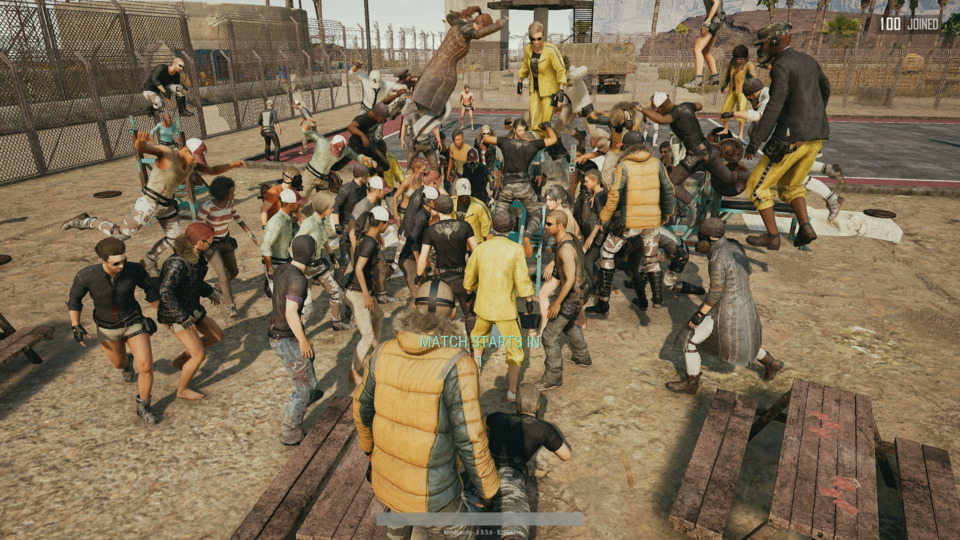
Now multiply all this possibility by a hundred people and you're left with no question why the game is so replayable. Battlegrounds allows for situations to arise that range from heart-pounding tension to madcap hilarity, sometimes in the same match. It's a great chat room for catching up with friends. It's one of the wildest, most frightening, most entertaining shooters I've played in ages. It's something else.
The Legend of Zelda: Breath of the Wild
Zelda has set the standards for an entire genre three times now, first with the original game, then Ocarina of Time, and now Breath of the Wild. Though, of those three, this game is an outlier; the first two games laid down rules that hadn't been written yet, while Breath of the Wild instead represents Nintendo reacting to what's already the most pervasive genre in the medium, swooping in at just the time open world games were at their most stale to completely upend the very notion of what an open world can be. This is just the richest and most consistently entertaining video game environment I've ever explored, with so many interesting little attention-grabbing things crammed in--and so many unique ways to interact with them--that I could sit down to play, set an initial goal and then spend hours never even getting near that goal because I was constantly distracted by all the other things to do. I'm not at all surprised by the making-of information that's leaked into the public, about how much the designers considered things like your line of sight and the shape of the terrain as they decided where to place all the world's mysteries and secrets, but none of that artifice is apparent in the end product. It all feels utterly seamless and natural as you explore it.
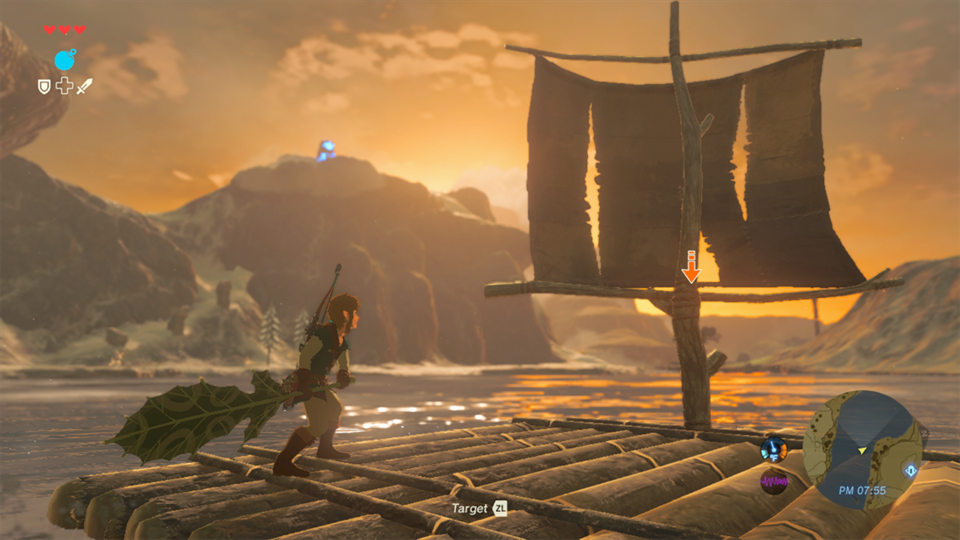
It's not just the expert world design that makes Breath of the Wild so remarkable. Zelda has been notorious for holding your hand for so long that this seemed like the last franchise you'd ever expect to emphasize player freedom and expression, but this game does that as well as anything I've ever played. There are so many underlying forces at work in the game, from fire and temperature to air currents, magnetism, electricity, and so on that the range of situations that arise from them, and the seemingly endless ways you can approach solving those situations, never stopped entertaining me. Things like the ability to climb all over everything, and the game's completely open, non-linear structure just further contribute to the sense that the world of Hyrule is your magical, systems-driven playground. By returning the emphasis to thoughtful exploration and surveying the landscape, instead of just marking a bazillion icons on your map, they even managed to make climbing towers fun again. Also, because I don't know where else to put this, the game has a subtle and quirky sense of humor that I don't think gets nearly enough credit.
You know the cliché about open worlds, that whole thing about seeing a mountain and being able to actually go there? To me, Breath of the Wild's addition to the genre is to say that it's not enough that you can go there; you'd better make damn sure your world is finely crafted enough that it's actually worth the player's effort to undertake the journey.